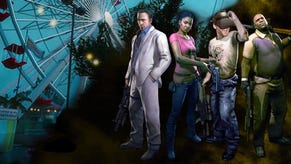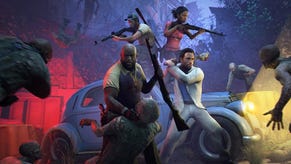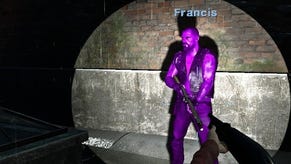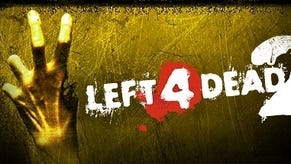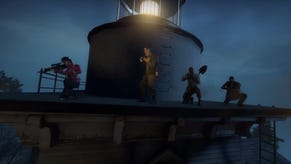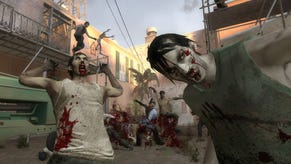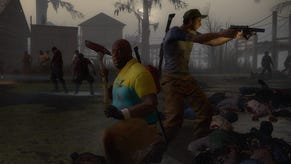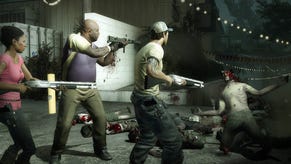Valve's Chet Faliszek
On how Left 4 Dead 2 works and why.
Left 4 Dead 2 is a really big departure for us. For example, with Half-Life 2 Episode 1, do you remember when you get into the Citadel for the first time, there's one of the big things that fly over you, and he's holding some striders? Getting people to look up to that was impossible. We put a guy up in a balcony shooting at you, and then you turn and look. Problem with Left 4 Dead is, it's all dynamic, it's meant to be different every time, we never want to have that guy up there always shooting at you.
Navigation's probably the simplest and the hardest, especially in The Parish where it's bright out. In Left 4 Dead 1 we used light as a way to lead you through a level - if you get lost, look for the light - so in a map where it's bright already, we had to work with some different things. Sometimes it's these subtle things of, hey, these cars are all pointed this way. You have to sit there and look at that, and if you're playing you're never going to notice that, but it's just how your eye works - it knows to go look there. It's like, 'oh, we're leading from the left to right of the screen,' and then you go down there and you realise the door at the end of the street is on the right.
We actually have a psychologist that works with us, and we have outside playtesters come in a few times a week. They get recorded playing. The level designers watch what happens when people get lost, and we talk about what's going on. You can normally see. It'll be that they're all excited about this little red thing they see, and it's just a kerb painted red, but they run over there. You see this happen enough times, and you realise you need to lead their eye the other way. You can say the player's wrong the first couple of times, but you get real clarity when the 10th person's still going to that little red thing and excited about it.
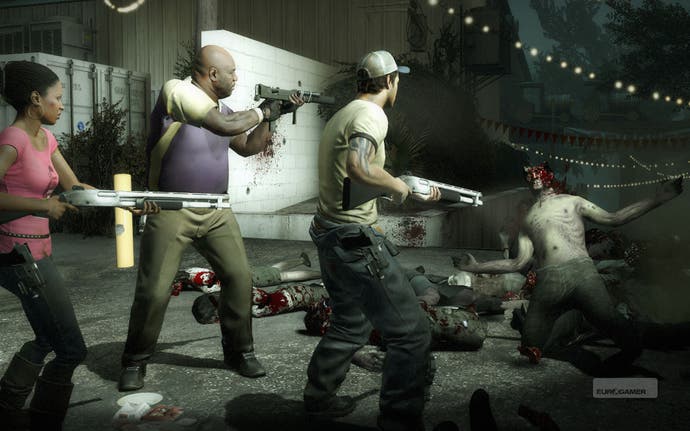
There's some things we've looked at. One of the cool things with Left 4 Dead is that your friend comes over who's never played it before, sits down on the couch and can play. Part of it is, it's a zombie apocalypse, you're not going to get to plan, it's on the fly and a lot of the strategies are based on circumstance.
What we have added is some of this diversity of weapon-selection. If you want to be the grenade launcher dude, you obviously can't go alone, you need some help, and so you can define different rolls that way. We've kind of let people strengthen them that way as well if they want. But equally we didn't want to start, 'You have to have the grenade launcher!' and [adopts whiny voice] 'I don't wanna be the grenade launcher guy.' We don't want to do that to people.
Yeah, that's been a big part.
We're not going to make it any more complicated just because there's somebody worrying about [whether it's a justifiable sequel], right? I think sequels in general have this problem where they don't want to make it just the same it was, but then there's some sequels that have made it a different game, and you feel that's not what you loved about it. Especially with a game like Left 4 Dead where it's really a throwback to kind of the Doom days. And FPSes have mostly gone down this route where it's more complex. You look at something like Far Cry 2, and it's got a lot of those elements, but it's got all these other elements and things to do. Adding that kind of complexity to Left 4 Dead wouldn't fit the world and the game.
It's a game we want people to just jump in, so we tried to be additive, but not additive to the complexity, so they would strengthen something you're already doing or they would give you another aspect into it, like the melee weapons. You pick them up, you start swinging. They each have their different little characteristics and their little payoffs, and we let people figure them out as they go along, but at the same thing we didn't want to make them this big complication. There's something about the purity and simplicity that we wanted to retain.

